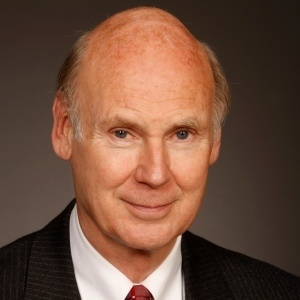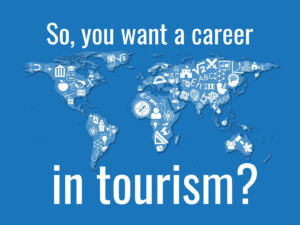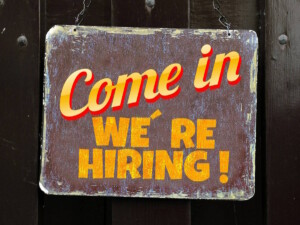Winning from within: How can travel & tourism stem the brain drain?

Travel & tourism is everyone’s business. It’s all about people. How do we keep people allied and inspired in organisations, destinations, and host communities?
K Michael Haywood tackles this problem in his third “Good Tourism” Insight.
[You too can write a “GT” Insight.]
“Astonish, Smarter Tourism by Design” (my new e‑book yet to be published) opens with the following dedication:
To the indispensable and essential efforts of hundreds of thousands of hospitable people around the world who, unwittingly, go beyond the call of duty to welcome, serve, give, and care for travelers and visitors — hosts who are too rarely acknowledged or recognized as dedicated and honorable, bringing their skills and talent, flair and enthusiasm, to travel and tourism, our communities, and a multitude of visitor-serving organizations — too long deserving of our tribute and countless accolades. From the bottom of our hearts, thank you.
Who is developing, thanking, and livening the spirits of your indispensable hosts; your citizens and employees?
After all, people do the heavy lifting required by all communities-as-destinations. And they deliver the value that visitor-serving organisations pride themselves in offering.
Also see Peter Semone’s “GT” Insight
“What is destination human capital? It’s the people!”
And yet, for various reasons, they often lack a sense of connectedness, purpose, belonging, engagement, and meaning, which leads me to wonder:
What would happen if everyone in a community lacked the skills and capabilities to excel at relationship-building?
What if people remained deficient in their ability to co-create and deliver services; build endearment; strengthen loyalty to organisation and place brands; and reveal initiative and ingenuity?
What if people were never rewarded for being kind and empathetic?
Asked in a totally different way: What are your travel & tourism organisations and communities doing to avoid brain drain and ensure brain gain?
From hired hands to change agents
It’s well known that many employers still treat their employees as hired hands.
They micro-manage them, inadequately train them, and reward them only on the basis of the tasks that they do and the hours it takes to do them.
While many espouse the importance of superior employer-employee relationships, why then then do so many rarely communicate with their employees face to face?
Why do so many neglect to weave meaningful experiences into work, or make decisions that fail to support workers and contribute to job insecurity?
Witness the priority given to luring workers through perquisites while failing to reinvent or change the nature of menial work; failing to even try to be top employers; failing in their stated commitment to “build back better” … all of which are necessary for more conscientious and collaborative community-driven approaches to tourism.
Also see Andrew Chan’s “GT” Insight
“Data analytics, financial acumen are keys to a great career in tourism”
At the more macro level, consider the nature and extent of involvement that residents of communities should have in regard to tourism planning and development. For the most part, discussion of that is mere lip service.
In light of the need for rectification, imagine the uphill battle as the industry attempts to reboot the customer experience to bring back the magic of travel and deal with the decline in business travel.
If amends and atonement are to occur, surely power and bureaucracy will have to be replaced with “humanography”.
If not, can regenerative forms of tourism, which some say will be at the forefront of recovery efforts, be achieved, especially when the prevailing desire within the industry remains fixated on a return to solvency and profitability?
With relationships remaining strained between employers and employees, between organisations, governments, and communities, it is inevitable that trust will evaporate and the impetus for change will stall.
So, where to look for advice? From a new breed of marketers?
In this case, yes, as some are striving to generate community value through regenerative marketing and the re-building of trust.
Also see Bronwyn Hutchison’s “GT” Insight
“How NZ’s Tiaki Promise advances regenerative travel & tourism”
Test your organisation and community’s will for doing so:
Who in the industry, and your community, are the most likely change-makers?
Who has the expertise and gumption to bring about the necessary transformations?
Do your answers provide a glimmer of hope as to how visitor-serving organisations and a fragmented industry can break the patterns of their persistent pragmatisms?
Clearly we have an obligation to learn how to better bring about progress.
Winning from within
We have the smarts to get on with the job, but how long is our collective intransigence going to remain in the way?
In a previous “Good Tourism Insight I wrote about how travel & tourism industry clusters can bring diverse stakeholders together to realise the manifold potentials inherent in any community-as-destination.
Also see K Michael Haywood’s “GT” Insight
“Smart clusters: How destinations can organise for a better future”
Similarly, such an approach undertaken within an organisation promises to bring its people together to manifest great outcomes.
Consider, for example, giving employees a sense of purpose and community, training for trust, and revising and reshaping the distribution of power within your organisation.
For example, within a future-back strategy framework, participants partake in a definitive call-to-action that provides clarity and urgency (which is often undermined through a crisis of vision) to mobilise hearts and minds towards a common goal- or outcome-driven initiative or innovation
Such inclusiveness in problem-solving and decision-making bolsters the spirit of co-operation and collaboration that is essential for aspirations to be realised.
With the purposes and goals of a tourism organisation clarified, and with everyone emotionally and intellectually invested in reaching them, more progressive performance metrics such as Balanced Scorecards can then be developed.
In another “Good Tourism” Insight, I shared how I think tourism destinations-as-communities can be better and smarter by design.
Also see K Michael Haywood’s “GT” Insight
“Can destinations-as-communities be better & smarter by design?”
Of course better and smarter is contingent on the continuous development of the capacities of people, which in turn relies on organisations enhancing peoples’ talent, encouraging initiative, and ensuring win-win outcomes.
Thus it is essential that destinations’ tourism clusters prioritise training. They should collaborate with educational institutions on curriculum changes that ensure future-ready skills and capabilities, both soft and technical.
Just as the realisation of an individual’s aspirations requires commitment and effort by that individual, so too the realisation of a collective aspiration requires commitment and effort on behalf of all who share it.
Little progress can be made unless “jobs-to-be-done” mandates are also applied to outcome-driven initiatives and innovations; those that embrace all the life- and community-affirming values important to stakeholders and citizens.
Of course, the necessary financial and human resources and tools that act as propellants for initiative and innovation, have to be readily available. Space for meetings will be required which suggests the need for regional or local destination innovation hubs in which discussions, collaborations, and experiments can take place.
Also see Kristin Dunne’s “GT” Insight
“Planning tourism with purpose & love in New Zealand’s Bay of Plenty”
While money and dedicated infrastructure can help, ultimately it is individuals and organisations that have to take a lead; even lending their own spaces for the purpose.
Similarly, it is individuals and organisations that must be prepared to take a risk on the new ideas and opportunities that emerge despite lingering fears.
Determined to stem the brain drain and ensure a brain gain, a smarter tourism industry will utilise the power of clusters to identify and attract smart people.
And smarter tourism organisations will do what they can to actualise the potential of their people across multiple dimensions.
At all levels, a smarter tourism will be made possible by smart people enhancing the inter-dependencies that serve and embellish their relationships, organisations, and communities-as-destinations.
What do you think? Share a short anecdote or comment below. Or write a deeper “GT” Insight. The “Good Tourism” Blog welcomes diversity of opinion and perspective about travel & tourism because travel & tourism is everyone’s business.
Featured image (top of post): Image by geralt (CC0) via Pixabay.
About the author

K Michael Haywood is Professor Emeritus, School of Hospitality, Food and Tourism at the University of Guelph in Ontario, Canada. Prof Haywood has recently written an e‑book “Astonish, Smarter Tourism by Design”. Find Michael on LinkedIn.





